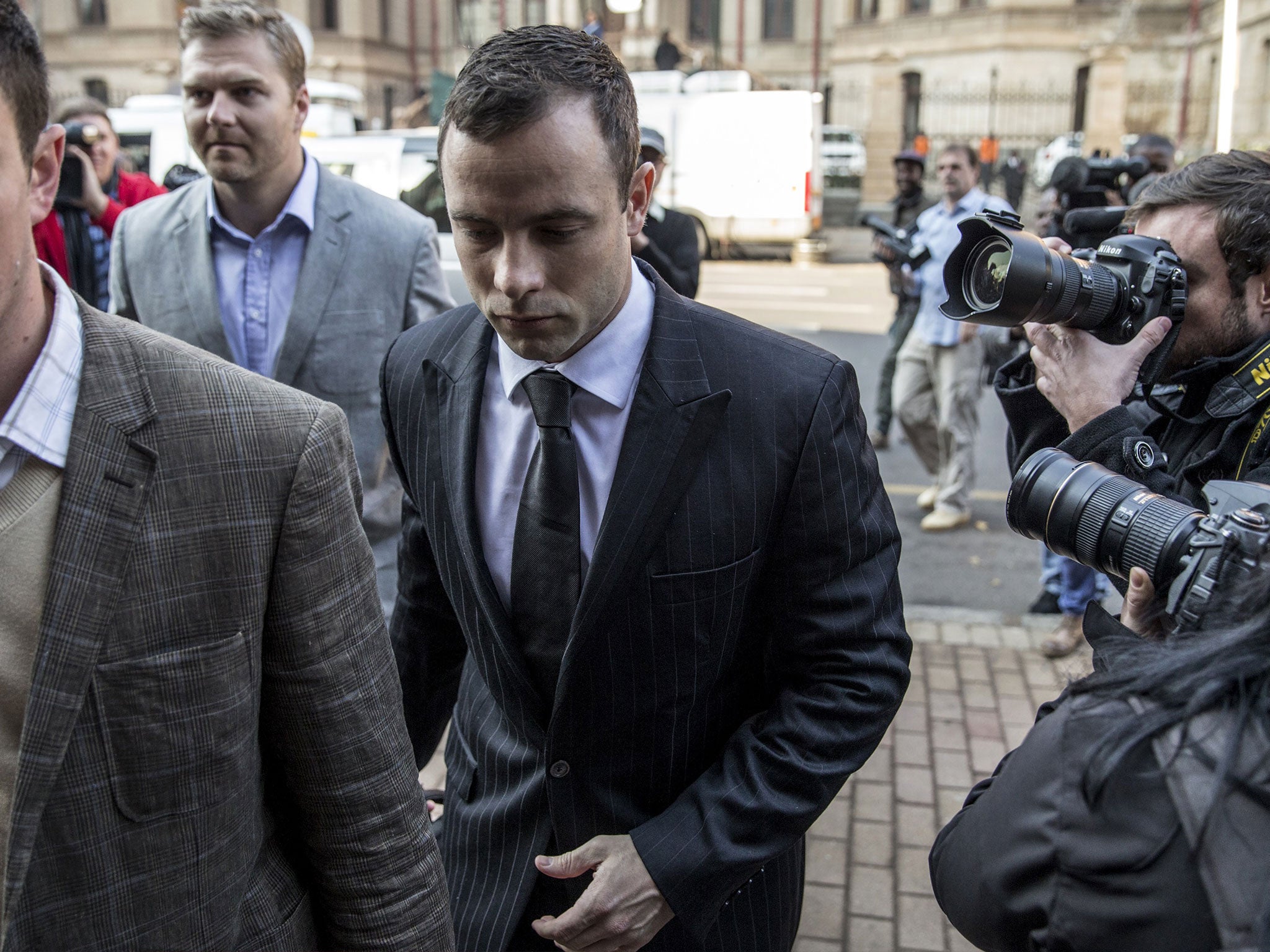Oscar Pistorius trial: Psychiatric report finds athlete 'is not mentally ill'
A panel of mental health experts has concluded that Oscar Pistorius was not suffering from a mental illness when he killed girlfriend Reeva Steenkamp as murder trial resumes in Pretoria

Your support helps us to tell the story
From reproductive rights to climate change to Big Tech, The Independent is on the ground when the story is developing. Whether it's investigating the financials of Elon Musk's pro-Trump PAC or producing our latest documentary, 'The A Word', which shines a light on the American women fighting for reproductive rights, we know how important it is to parse out the facts from the messaging.
At such a critical moment in US history, we need reporters on the ground. Your donation allows us to keep sending journalists to speak to both sides of the story.
The Independent is trusted by Americans across the entire political spectrum. And unlike many other quality news outlets, we choose not to lock Americans out of our reporting and analysis with paywalls. We believe quality journalism should be available to everyone, paid for by those who can afford it.
Your support makes all the difference.Oscar Pistorius had no mental illness and understood the wrongfulness of his actions the night he shot and killed girlfriend Reeva Steenkamp, his murder trial heard as proceedings resumed on Monday.
Returning to Pretoria's High Court, chief prosecutor Gerrie Nel referred to key parts of the athlete's psychiatric evaluation, noting that the independent panel of experts came to the conclusion that the athlete does not suffer from a mental illness and was "capable of appreciating the wrongfulness of his act".
"Mr Pistorius did not suffer from a mental defect or mental illness at the time of the commission of the offence that would have rendered him criminally not responsible for the offences charged," Mr Nel told the court, reading from the report.
Both the prosecution and his defence counsel accepted the findings of the report, compiled by three psychiatrists and one psychologist, although his legal team called for more time to assess the findings and make some consultations.
The evaluation came after Dr Merryll Vorster, an expert witness for the defence, testified that Pistorius has a generalised anxiety disorder (GAD) and his actions would be different to those of an able-bodied person under stress.
Last month, Pistorius was ordered to undergo a 30-day mental health evaluation, checking-in at Pretoria's Weskoppies psychiatric hospital on 26 May, where he was assessed for seven hours a day, after the prosecution called for an independent assessment.
Throughout the trial, the prosecution has painted a picture of a gun-loving, possessive and jealous boyfriend who often snapped at Ms Steenkamp. In stark contrast, his defence argues the athlete's life has been marked by tragedy, after undergoing a double leg amputation as a baby and losing his mother at a young age.
Later, defence witness, Gerald Versfeld, the surgeon who amputated Pistorius' lower legs when he was 11 months old, told Pretoria's High Court the athlete has difficulties standing on his stumps without support and finds it painful to walk without his prosthetics legs.
Mr Versfeld also told the court his disability made him "vulnerable in a dangerous situation" and is more likely to fight than flight as a result of his limited mobility without his prosthetics.
Pistorius is 1,56m tall on his stumps, and 1,86cm tall with his prosthetic legs on.
If convicted of murder, which the athlete denies, Pistorius faces a mandatory life sentence which usually carries a minimum of 25 years in jail, though mitigation could reduce it in this case.
The trial continues.